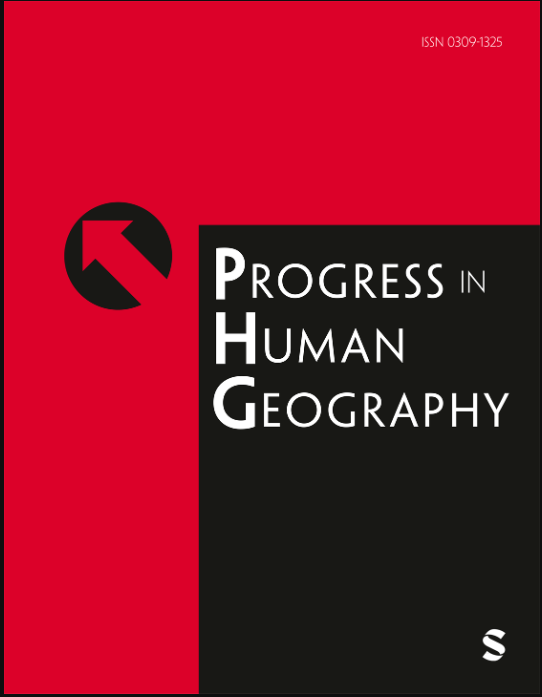数字地理 1:现实字节
IF 6.1
1区 社会学
Q1 GEOGRAPHY
引用次数: 0
摘要
本报告旨在为辩论提供一个基础,说明地理学家是如何应对挑战,理解数字这种无形的、非物质的东西及其对空间生产的影响的。因此,这第一份报告将重点关注地理学家如何对数字生产和媒介空间进行概念化。它将追溯我们理解数字空间的方式,从努力解决在线与离线、真实与虚拟的二分法,到将其物质化、可视化,再到最近对其情感取向的转变。本文章由计算机程序翻译,如有差异,请以英文原文为准。
Digital geographies 1: Reality bytes
This report is intended to provide a foundation to debates which illustrate how geographers have approached the challenge of understanding something variously invisible and immaterial as the digital and its impacts on the production of space. Thus, this first report will focus on how geographers conceptualise digitally produced and mediated spaces. It will trace the way we have understood digital spaces from grappling with the dichotomies of online and offline, real and the virtual, to grounding them materially, rendering them visible, and to more recent shifts about their affective orientations.
求助全文
通过发布文献求助,成功后即可免费获取论文全文。
去求助
来源期刊

Progress in Human Geography
GEOGRAPHY-
CiteScore
16.40
自引率
7.00%
发文量
56
期刊介绍:
Progress in Human Geography is the peer-review journal of choice for those wanting to know about the state of the art in all areas of research in the field of human geography - philosophical, theoretical, thematic, methodological or empirical. Concerned primarily with critical reviews of current research, PiHG enables a space for debate about questions, concepts and findings of formative influence in human geography.
 求助内容:
求助内容: 应助结果提醒方式:
应助结果提醒方式:


